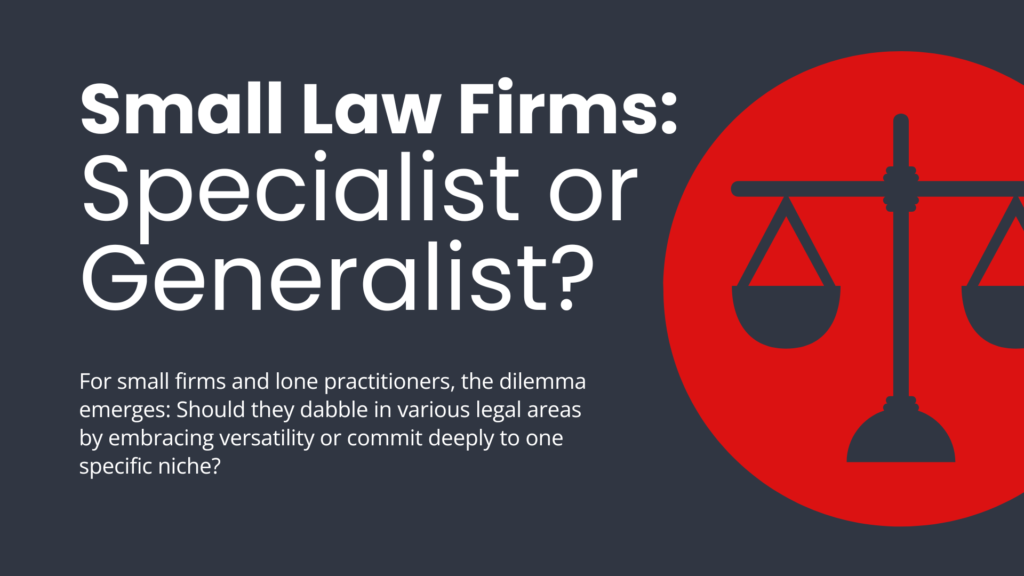Market Demand: Assessing the market demand is crucial. If there is a strong call for specific legal services, specializing might be advantageous. On the flip side, if the market leans towards a variety of services, being a generalist could pay off. Some firms opt for a middle ground, starting broad and then honing in on specialties as demand dictates. It is a natural way to grow for many successful firms. However, blindly following market trends also carries risks.
Client Preferences: Your firm’s direction hinges on the clients you serve or aim to attract. Some clients prefer specialized expertise, while others want a one-stop legal solution. Understanding their needs guides how the firm specializes. In complex matters like corporate deals, clients often need expertise across different areas—like M&A, tax, competition and employment laws—all in one place for simplicity. Today’s clients search online for specific, tailored services that suit them. Amid economic shifts and firm expenses, specialized law practices are gaining traction.
Long-term Goals: Consider the firm’s future aspirations when making this choice. Specializing can establish expertise, potentially increasing fees and appeal to a specific set of clients. Conversely, generalists might reach a wider audience and be more adaptable to market changes. Diversification can dilute your brand, especially for boutique firms that often operate at a smaller scale. Accepting cases within your comfort zone aids cash flow, yet straying from your specialization compromises your expertise.
Resources and Skills: When deciding on specialization, it’s essential to weigh your firm’s resources and skills. Specializing demands in-depth knowledge, ongoing learning, and potentially recruiting specialized talent. On the other hand, generalists need a wider skill set covering various legal areas.
Competition: Understanding the competitive landscape is crucial. If there are few specialized firms in a specific area of law, it might present an opportunity to become a leading expert in that field. However, if there’s intense competition among specialized firms, being a generalist might provide a unique selling proposition.
Risk and Adaptability: In weighing risks and adaptability, specializing could pose higher risks in case of economic fluctuations and market shifts. On the other hand, generalists might navigate market changes more easily, yet they could struggle to distinguish themselves amid specialized competition.
Client Relationships: When it comes to client connections, specializing can build robust relationships with those seeking specific expertise. Conversely, generalists may cultivate a broader clientele but might lack the depth of specialized knowledge.
Small law firms can benefit from carefully considering these elements before settling on a strategy. While some begin as generalists to build their clientele, they later pivot toward specialization based on market shifts or unique chances. Conversely, other firms opt to maintain their generalist approach to cater to a diverse client base. Ultimately, the ideal path often emerges from a blend of these factors in alignment with the firm’s vision for advancement and achievement.
In the grand scheme, one rule stands tall: Project a consistent identity to your clients. Perception is key.
